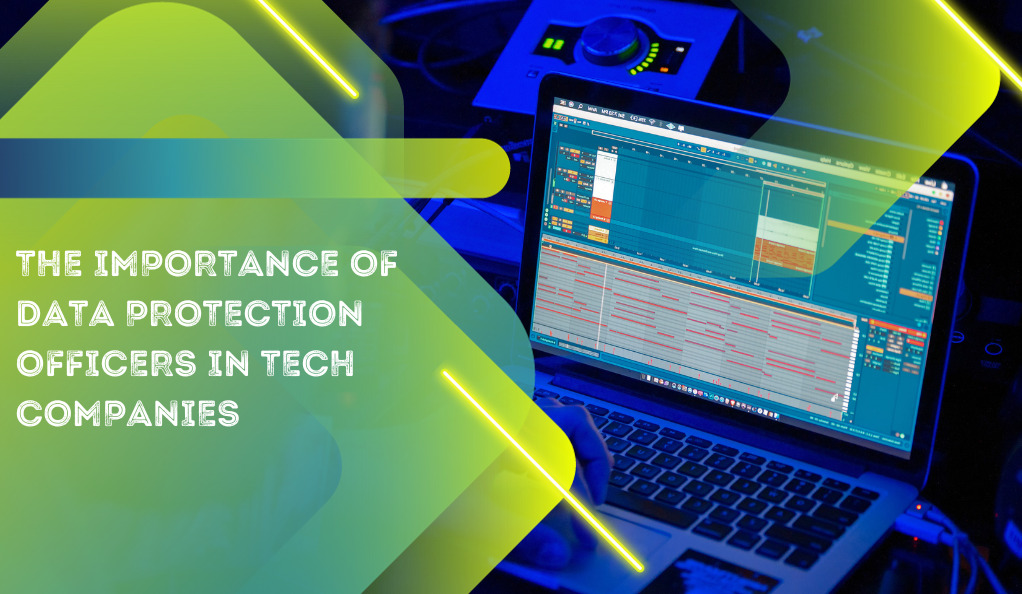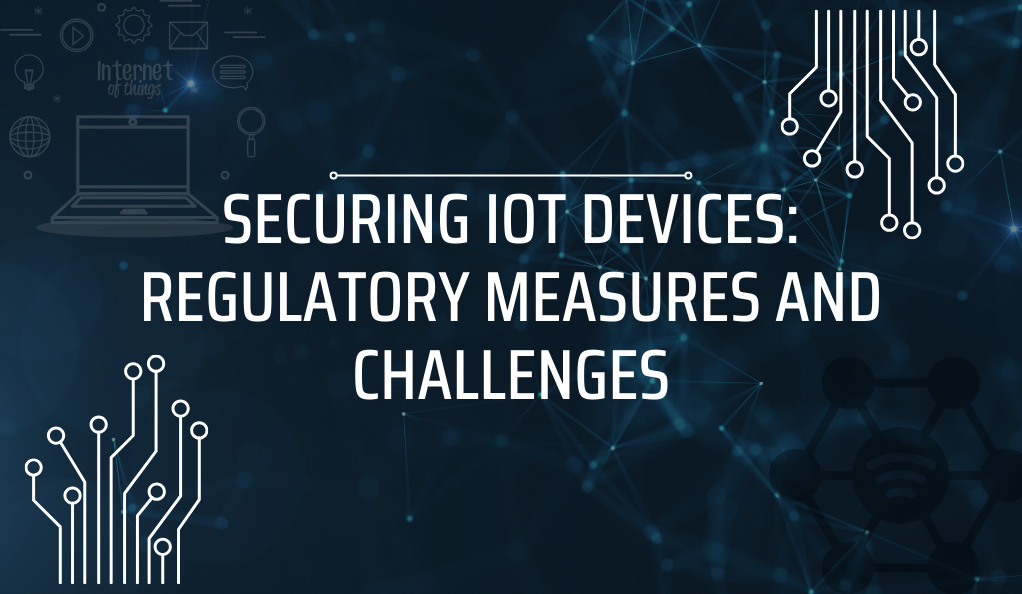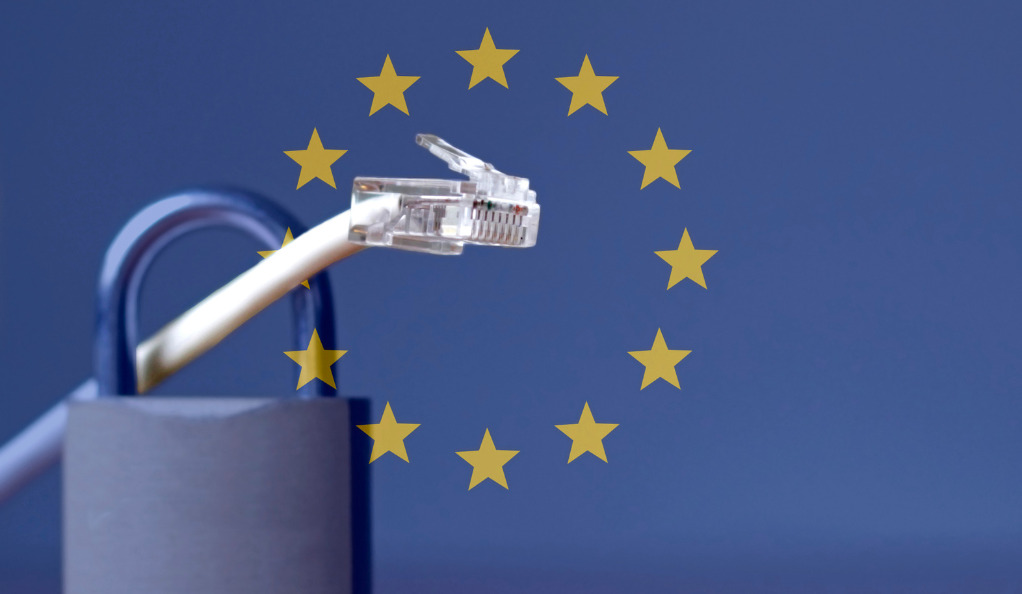In today’s digital age, where data is often referred to as the “new oil,” the tech industry finds itself at the forefront of a rapidly evolving landscape. With the exponential growth of data generation and consumption, tech companies are not only the custodians of vast amounts of personal and sensitive information but also the primary targets for cyber threats and data breaches. As such, the need for stringent data protection measures has never been more paramount.
The Digital Data Deluge
Every day, billions of people around the world interact with technology, leaving behind a digital footprint. From social media posts, online purchases, to wearable health devices, the amount of data generated is staggering. According to a report by Statista, the global data sphere is expected to grow to 175 zettabytes by 2025, a nearly fivefold increase from 2010.
| Year | Global Data Sphere (in zettabytes) |
|---|---|
| 2010 | 2 ZB |
| 2015 | 8 ZB |
| 2020 | 40 ZB |
| 2025 | 175 ZB (Projected) |
The Rising Tide of Data Breaches
As the volume of data grows, so does the attractiveness of this data to malicious actors. Data breaches have become alarmingly common, with tech giants like Yahoo, Equifax, and Facebook falling victim in recent years. The consequences of such breaches are not just financial; they erode public trust and can have lasting reputational damage.
A study by the Ponemon Institute found that the average cost of a data breach in 2020 was $3.86 million, with the tech industry being one of the most affected sectors (Cost of a Data Breach Report 2023 – ibm.com). Moreover, the average time to identify and contain a breach was 280 days, highlighting the challenges companies face in detecting and responding to threats.
The Imperative for Robust Data Protection
Given this backdrop, the role of Data Protection Officers (DPOs) in tech companies has become indispensable. As gatekeepers of data privacy and security, DPOs play a crucial role in ensuring that tech companies not only comply with regulations but also foster a culture of data protection. Their expertise is vital in navigating the complex web of legal, ethical, and technical challenges that come with handling vast amounts of data.
Who is a Data Protection Officer (DPO)?
In the vast realm of the tech industry, where data flows are intricate and continuous, the Data Protection Officer emerges as a beacon of trust and compliance. But who exactly is a DPO, and what sets them apart in the organizational hierarchy?
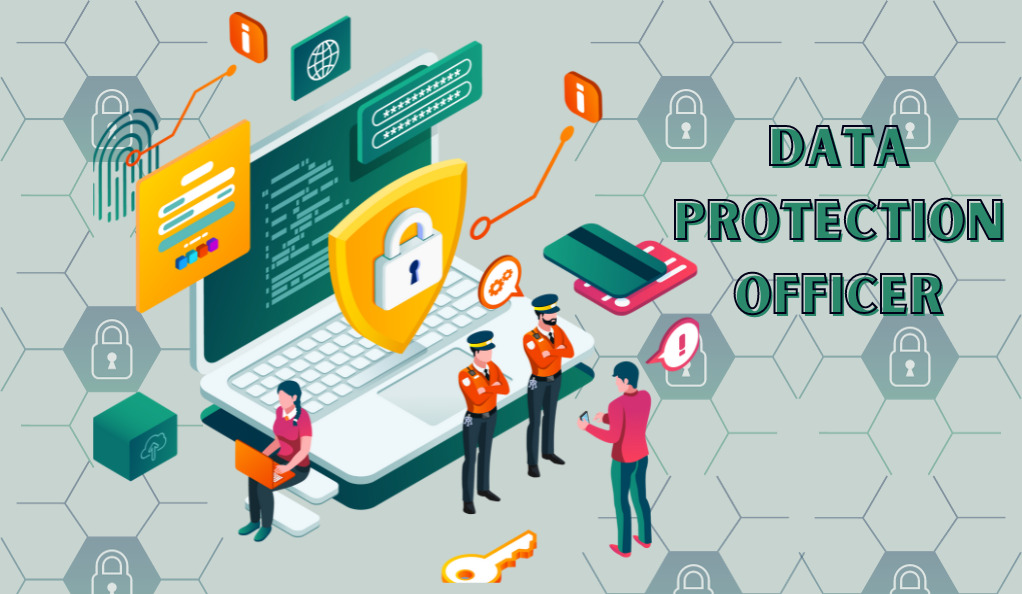
Defining the DPO
A Data Protection Officer, commonly abbreviated as DPO, is a professional entrusted with the responsibility of ensuring that an organization processes the personal data of its staff, customers, providers, and any other individuals in compliance with data protection rules. Their role is not merely administrative; DPOs are expected to possess a deep understanding of legal regulations related to data protection, as well as the technical know-how to implement them.
The Independent Nature of Their Position
One of the unique aspects of a DPO’s role is their independence. They are not swayed by the organization’s internal pressures and are free from any conflict of interest. This independence ensures that their primary allegiance is to the principles of data protection and the rights of individuals.
For instance, under the European Union’s General Data Protection Regulation (GDPR), a DPO is required to perform their duties in an independent manner. They cannot be dismissed or penalized for performing their tasks and must report directly to the highest management level. This structural positioning within the organization ensures that their voice is not only heard but also heeded.
The Growing Necessity for DPOs in Tech
With the tech industry’s inherent reliance on data, the role of a DPO becomes even more pronounced. Whether it’s a startup developing a new app or a tech behemoth handling data at an unprecedented scale, the principles of data protection remain consistent. DPOs ensure that these principles are not lost in the rapid pace of innovation and growth.
The Legal Framework: GDPR and Beyond
In the digital age, where boundaries are blurred and data flows are global, the need for a unified legal framework to protect personal data has become increasingly evident. Enter the General Data Protection Regulation (GDPR) – a landmark legislation that has set the gold standard for data protection worldwide.
The Genesis of GDPR
The European Union’s General Data Protection Regulation, commonly known as GDPR, came into effect on May 25, 2018. It was designed to harmonize data privacy laws across Europe, protect the privacy of EU citizens, and reshape the way organizations approach data privacy. One of its most notable mandates was the requirement for certain organizations to appoint a Data Protection Officer (DPO).
At its core, GDPR is built on the principle of giving individuals control over their personal data. It emphasizes transparency, accountability, and the importance of securing personal data.
Key Provisions of GDPR
- Consent: Organizations must obtain explicit consent from individuals before collecting and processing their data. This consent must be freely given, specific, informed, and unambiguous.
- Right to Access: Individuals have the right to know whether their data is being processed, where, and for what purpose. They can also request a copy of their personal data.
- Right to be Forgotten: Also known as Data Erasure, individuals can request that their personal data be deleted, ceasing further dissemination and potentially halting third-party processing.
- Data Portability: Individuals have the right to receive their personal data and transmit it to another controller.
- Privacy by Design: Data protection measures must be integrated into the design stage of products and processes, rather than being an addition.
Beyond Europe: The Global Ripple Effect
While GDPR is an EU regulation, its impact is felt globally. Any organization, regardless of its location, that offers goods or services to, or monitors the behavior of, EU data subjects, falls under its purview. This has led to a ripple effect, with countries outside the EU adopting similar regulations. From the California Consumer Privacy Act (CCPA) in the United States to the Personal Data Protection Bill in India, the principles of GDPR are echoing worldwide.
The Central Role of DPOs in GDPR Compliance
DPOs are instrumental in ensuring GDPR compliance. They are not just passive observers but active participants in shaping an organization’s data protection strategy. From conducting regular audits, risk assessments, to being the point of contact for supervisory authorities, their role is multifaceted and crucial.
Key Responsibilities of a DPO
The role of a Data Protection Officer is not merely titular. With the weight of ensuring an organization’s compliance with data protection regulations, a DPO’s responsibilities are both vast and vital. Let’s delve into the core duties that define this pivotal role.

Ensuring Awareness and Training
One of the primary responsibilities of a DPO is to ensure that the organization’s staff is not only aware of the data protection regulations but is also adequately trained to adhere to them. This involves:
- Conducting regular training sessions and workshops.
- Disseminating updates on any changes or amendments in data protection laws.
- Creating a culture where data protection is viewed as a collective responsibility.
Handling Subject Access Requests
Individuals have the right to access their personal data, know its source, and understand how it’s being used. DPOs ensure:
- Prompt responses to these access requests.
- Verification of the identity of the person making the request to prevent data breaches.
- Proper documentation of all such requests and their outcomes.
Data Mapping and Privacy Impact Assessments
Understanding the flow of data within the organization is crucial. DPOs are responsible for:
- Data mapping: Tracing the flow of personal data through its lifecycle within the organization.
- Conducting Privacy Impact Assessments (PIAs) to identify and mitigate risks associated with data processing activities.
Audits and Compliance
To ensure that an organization remains compliant, DPOs:
- Conduct regular audits to assess data processing activities.
- Identify potential areas of non-compliance and recommend corrective actions.
- Maintain a record of data processing activities, as mandated by GDPR.
Liaison Between Organization and Public
DPOs act as the bridge between the organization and the public regarding data privacy matters. They:
- Address queries, complaints, or concerns raised by individuals about their personal data.
- Serve as the point of contact for supervisory authorities, facilitating inspections or investigations.
Proactive Issue Addressal
Rather than waiting for issues to arise, DPOs take a proactive approach by:
- Monitoring data processing activities to identify potential risks.
- Implementing preventive measures to mitigate these risks.
- Keeping abreast of the latest developments in data protection and cybersecurity.
The DPO’s Role in Decision Making
In the intricate tapestry of an organization’s structure, the Data Protection Officer (DPO) stands out not just as a guardian of data but also as a key decision-maker. Their influence extends beyond the realm of data protection, impacting the very core of an organization’s operations and strategy.
Direct Reporting to the Highest Management Level
The significance of a DPO’s role is underscored by their positioning within the organizational hierarchy. As mandated by GDPR, a DPO doesn’t merely function within the confines of a department but has a direct line to the highest echelons of management. This ensures:
- Their recommendations are given due consideration.
- Data protection remains a top priority at the strategic level.
- There’s a seamless flow of information, ensuring timely interventions when needed.
Advising on Data-Driven Initiatives
In an era where data-driven decisions are the norm, a DPO’s expertise is invaluable. They:
- Provide insights on the feasibility of data-intensive projects, ensuring they align with data protection regulations.
- Offer guidance on the ethical implications of data usage, ensuring that initiatives don’t infringe on individual rights.
- Collaborate with tech teams to ensure that data protection measures are integrated right from the development phase.
Impact on Vendor and Third-Party Relationships
DPOs play a crucial role in shaping an organization’s relationships with vendors and third parties, especially those involving data sharing or processing. They:
- Vet third-party vendors to ensure they comply with data protection standards.
- Oversee the drafting of data processing agreements, ensuring they are watertight in terms of data protection.
- Monitor third-party data handling practices, ensuring they align with the organization’s standards and regulatory requirements.
Crisis Management and Breach Response
In the unfortunate event of a data breach, the DPO is at the forefront of crisis management. Their responsibilities include:
- Coordinating the organization’s response to the breach.
- Notifying affected individuals and regulatory authorities, as mandated by law.
- Leading post-breach investigations to understand the cause and prevent future incidents.
Challenges and Protections for DPOs
The role of a Data Protection Officer, while crucial, is not without its challenges. Navigating the complex landscape of data protection, especially in the fast-paced tech industry, presents a myriad of obstacles. However, recognizing these challenges, various regulations and frameworks have put protections in place for DPOs.
The Balancing Act: Business Goals vs. Data Protection
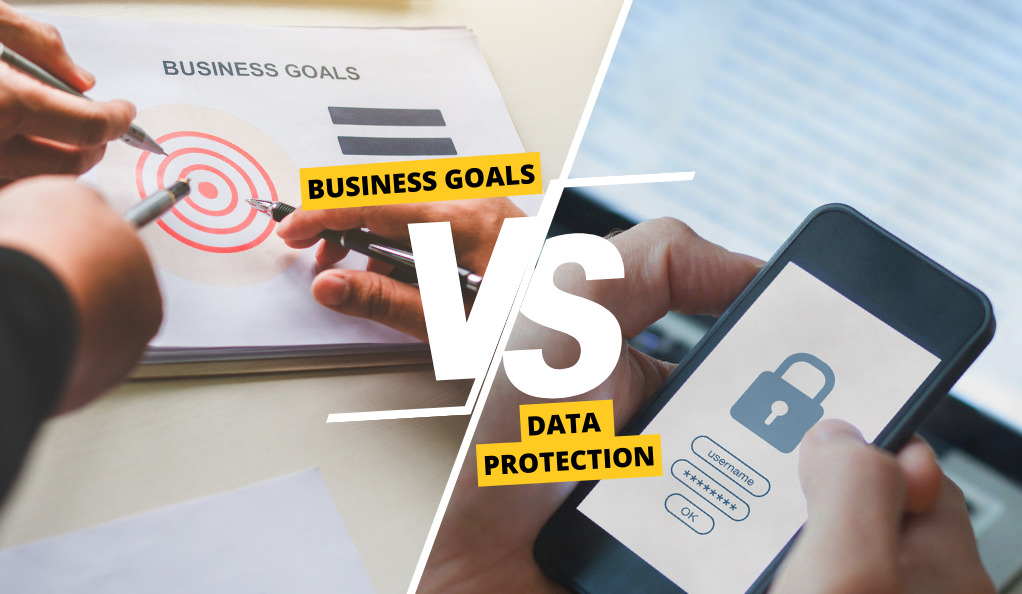
One of the primary challenges DPOs face is striking a balance between the organization’s business objectives and the stringent requirements of data protection. They often find themselves in situations where they must:
- Advocate for data protection in projects that promise significant business returns.
- Push back against initiatives that might compromise data integrity, even if they align with business goals.
Keeping Abreast of Evolving Regulations
Data protection regulations are not static. As the digital landscape evolves, so do the rules governing it. DPOs must:
- Continuously update their knowledge to stay compliant.
- Ensure that the organization’s practices evolve in tandem with these changes.
Ensuring Organization-Wide Compliance
While a DPO might be well-versed in data protection regulations, ensuring compliance across the organization is a monumental task. Challenges include:
- Training diverse teams with varying levels of data protection awareness.
- Monitoring compliance across different departments and geographies.
Protections for DPOs
Recognizing the challenges DPOs face, various protections have been institutionalized:
- Independence: As highlighted by GDPR, DPOs must operate independently, free from any organizational pressures that might influence their decisions.
- Protection Against Dismissal: DPOs cannot be penalized or dismissed for performing their duties. This ensures they can operate without fear of repercussions.
- Direct Access to Top Management: This ensures that their recommendations and concerns are addressed at the highest level.
The Future of Data Protection and the Evolving Role of DPOs
As we stand on the cusp of a new era in technology, marked by advancements like artificial intelligence, quantum computing, and the Internet of Things (IoT), the importance of data protection becomes even more pronounced. With this evolving landscape, the role of Data Protection Officers (DPOs) is set to undergo significant transformations.
The Surge in Data Generation
The next decade promises an explosion in data generation. With the proliferation of IoT devices, every aspect of our lives, from our homes to our cities, will be interconnected, generating vast amounts of data. This surge presents both opportunities and challenges:
- Opportunities: Enhanced user experiences, smarter cities, and more efficient systems.
- Challenges: Greater risks of data breaches, complex data management, and heightened privacy concerns.
AI and Data Protection: A Double-Edged Sword
Artificial Intelligence (AI) stands as a testament to the power of data. While AI can revolutionize industries, it also poses significant data protection challenges:
- Bias and Ethics: AI models can inadvertently perpetuate biases present in the data they’re trained on. DPOs will play a crucial role in ensuring ethical AI practices.
- Automated Decisions: With AI making decisions that can impact individuals, ensuring transparency and the right to explanation becomes paramount.
DPOs in the Age of Quantum Computing
Quantum computing, with its potential to revolutionize encryption, presents both threats and opportunities for data protection:
- Threats: Quantum computers could potentially break current encryption methods, putting data at risk.
- Opportunities: The development of quantum-safe encryption methods to ensure data protection in a post-quantum world.
The Evolving Role of DPOs
Given these advancements, the role of DPOs is set to evolve:
- Strategic Advisors: Beyond compliance, DPOs will play a strategic role in guiding organizations through the complexities of the digital future.
- Tech Liaisons: DPOs will work closely with tech teams, ensuring that data protection is integrated into the very fabric of technological innovations.
- Public Trust Builders: As concerns about data privacy grow, DPOs will be instrumental in building and maintaining public trust.
Conclusion
In an era where data is both an asset and a vulnerability, its protection emerges as a paramount concern. The tech industry, at the heart of this data revolution, bears a significant responsibility. Data Protection Officers, as the guardians of this realm, play a crucial role in ensuring that innovation and privacy go hand in hand.
However, the essence of data protection transcends regulations and roles. It’s about fostering a collective ethos—a shared commitment to treat data with the respect and care it deserves. As we venture deeper into the digital frontier, let’s prioritize data protection not just as a legal duty, but as a moral compass guiding our path.

